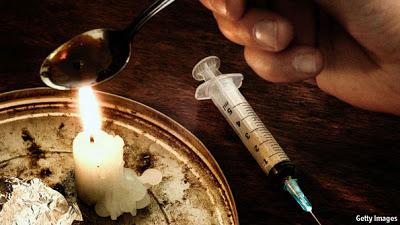 The United States has spent well over a trillion dollars in waging a "war on drugs", and we have filled our prisons with mostly non-violent drug offenders. In fact, we have put so many people in prison for drugs that we now lead the world in both the number of prisoners and the number incarcerated per capita our population. No other country, not even those considered to be police states with no citizen rights, even comes close to having as many people incarcerated as the U.S. does.
The United States has spent well over a trillion dollars in waging a "war on drugs", and we have filled our prisons with mostly non-violent drug offenders. In fact, we have put so many people in prison for drugs that we now lead the world in both the number of prisoners and the number incarcerated per capita our population. No other country, not even those considered to be police states with no citizen rights, even comes close to having as many people incarcerated as the U.S. does.And it hasn't worked at all. In spite of all the money spent and people locked up, drugs are still easily available to anyone who wants them and the number of users has not fallen significantly. Our "war on drugs" has been a spectacular failure by any measure. Unfortunately, most citizens and elected officials in this country continue to believe there is only one way to deal with the drug problem -- through the criminal justice system, believing that after 40 years of abject failure the system will somehow magically begin to work. Well, it won't!
But there is another way, a way that actually does work -- and one European country has shown us how to do it. Ten years ago, Portugal decriminalized ALL drugs. And contrary to popular belief in this country, it did not result in a new epidemic of drug addicts -- just the opposite. In that 10 year period they have been able to cut the number of "problematic" users in half (intravenous users and those who repeatedly use "hard" drugs).
How have they done this? They have done it by honestly educating the public and by providing treatment for those drug users. And they have done this while spending less money -- because education and treatment are much less expensive than incarceration.
All Portugal did was recognize that drug use is a medical and social problem -- not a legal problem. So they stopped treating it like a legal problem. Isn't it time that we learned from Portugal's success (and our own miserable failure), and did the same thing?

